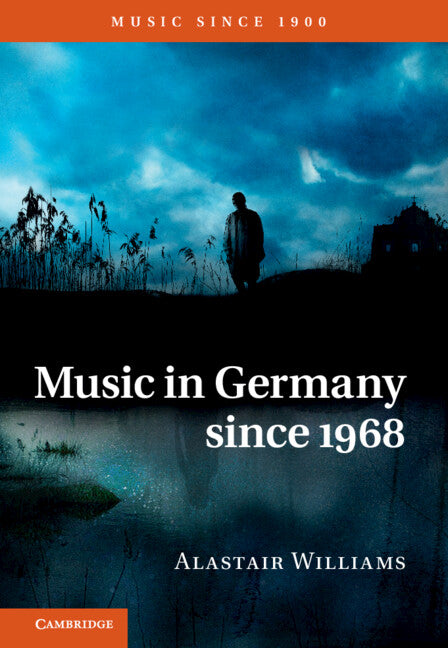Freshly Printed - allow 8 days lead
Couldn't load pickup availability
Music in Germany since 1968
Alastair Williams argues that the social transformations of 1968 led to a new phase of art music in Germany.
Alastair Williams (Author)
9780521877596, Cambridge University Press
Hardback, published 18 July 2013
290 pages, 4 b/w illus. 4 tables 35 music examples
25.5 x 18.2 x 2.2 cm, 0.7 kg
Music in Germany since 1968 modifies the dominant historiography of music in post-war Germany by shifting its axis from the years of reconstruction after 1945 to the era following the events of 1968. Arguing that the social transformations of 1968 led to a new phase of music in Germany, Alastair Williams examines the key topics, including responses to serialism, music and politics, and the re-evaluation of tradition. The book devotes central chapters to Helmut Lachenmann and Wolfgang Rihm, as focal points for areas such as postmodernism, musical semiotics and action-based gestures. Further chapters widen the scope by considering the precursors and contemporaries of Rihm and Lachenmann, especially in relation to the idea of historical inclusion. Williams's study also assesses the development of the Darmstadt summer courses, addresses the significance of German reunification, and considers the role of Germany in a new stage of musical modernism.
Preface
1. Contexts and institutions
2. Expanded horizons: established composers after 1968
3. The refusal of habit: Helmut Lachenmann
4. Music and signs: Wolfgang Rihm
5. Contemporaries of Lachenmann and Rihm: the younger generation
Epilogue.
Subject Areas: 21st century history: from c 2000 - [HBLX], Postwar 20th century history, from c 1945 to c 2000 [HBLW3], European history [HBJD], Theory of music & musicology [AVA]


